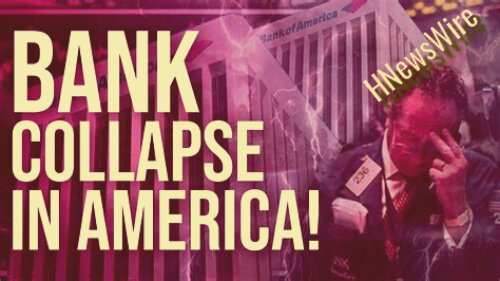Posts Tagged ‘Megabanks’
Watchman: In the New World Order, Only Four Banks Will Dominate, With Nearly 10,000 U.S. Banks Vanishing Since 1985. The Power Is Now Concentrated in the Hands of These Mega Banks, Which Control 39+ Percent of All Bank Assets
HNewsWire: By Pam Martens and Russ Martens, According to Federal Deposit Insurance Corporation (FDIC) data, there were 14,417 federally-insured banking institutions in the U.S. in 1985. As of December 31, 2023, the FDIC reports there are only 4,587 remaining. The vast majority of the 9,830 banks that have disappeared since 1985 did not fail – they were merged with other banks. Today, just four banks control $9.3 trillion in consolidated bank assets or 39 percent of all bank assets. Those four banks are JPMorgan Chase with $3.395 trillion in consolidated assets; Bank of America with $2.540 trillion; Wells Fargo with $1.7 trillion; and Citigroup’s Citibank with $1.685 trillion. (All asset figures are as of December 31, 2023 and come from the Federal Reserve’s statistical release of the largest banks.) The political clout of these mega banks is such that one of them,…
Read MoreWatchman: Megabanks Like the Big Four in the United States Produce Financial Instability and More Severe Crises, Big Bank Collapse Coming
HNewsWire: By Pam Martens and Russ Martens: It took eight years of research to compile a data set of annual balance sheets of more than 11,000 commercial banks dating back to 1870 in 17 advanced economies. And in every country, the study arrived at the same finding: concentrating the banking system in the hands of five or less giant banks leads to financial instability and more severe financial crises. The bank balance sheets of the following countries were examined: Australia, Belgium, Canada, Denmark, Finland, France, Germany, Italy, Japan, Netherlands, Norway, Portugal, Spain, Sweden, Switzerland, the United Kingdom, and the United States. The 150-year banking study is titled: “Survival of the Biggest: Large Banks and Financial Crises.” Its authors are Matthew Baron of Cornell University; Moritz Schularick of the Kiel Institute for the World Economy and Sciences; and Kaspar Zimmermann of the…
Read More
